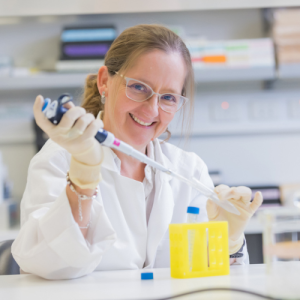
Dr Tertia Purves-Tyson
Monday 11th September
Plenary 2- Neurodevelopment: Preclinical Studies
Sex differences in dopamine-related molecular and behavioural changes in response to maternal immune activation and estrogen receptor modulation.
Senior Research Scientist, head of the Preclinical Neuropsychiatry Laboratory, NeuRA Conjoint Senior Lecturer, Discipline of Psychiatry and Mental Health, UNSW
President, Biological Psychiatry Australia.
Her research aims to discover fundamental knowledge of the molecular and cellular mechanisms underlying the cognitive deficits, psychosis and negative symptoms that impact people with schizophrenia. The goal is to identify new molecular targets for the development of better pharmacotherapies for all symptom domains. She is passionate about elucidating sex differences in the underlying neurobiology of schizophrenia to move toward sex-specific interventions.
Her preclinical research contributed significantly to the understanding of how testosterone and estrogen receptor modulation alter dopamine-related signalling pathways in the male midbrain, and dopamine-related behaviours in the context of the dopamine neurotransmitter system. Her human post-mortem studies have linked neuroinflammation and microglia (brain immune cells) to brain pathophysiology in schizophrenia.
Her current focus is utilising cellular models and a preclinical maternal immune activation model of dopamine dysregulation to elucidate the role of microglia and the molecular mechanisms underlying the therapeutic effects of interventions with potential benefit in schizophrenia. These include, raloxifene, an estrogen receptor modulator and oxytocin, a neuropeptide, both of which shown some therapeutic benefit in clinical trials.


